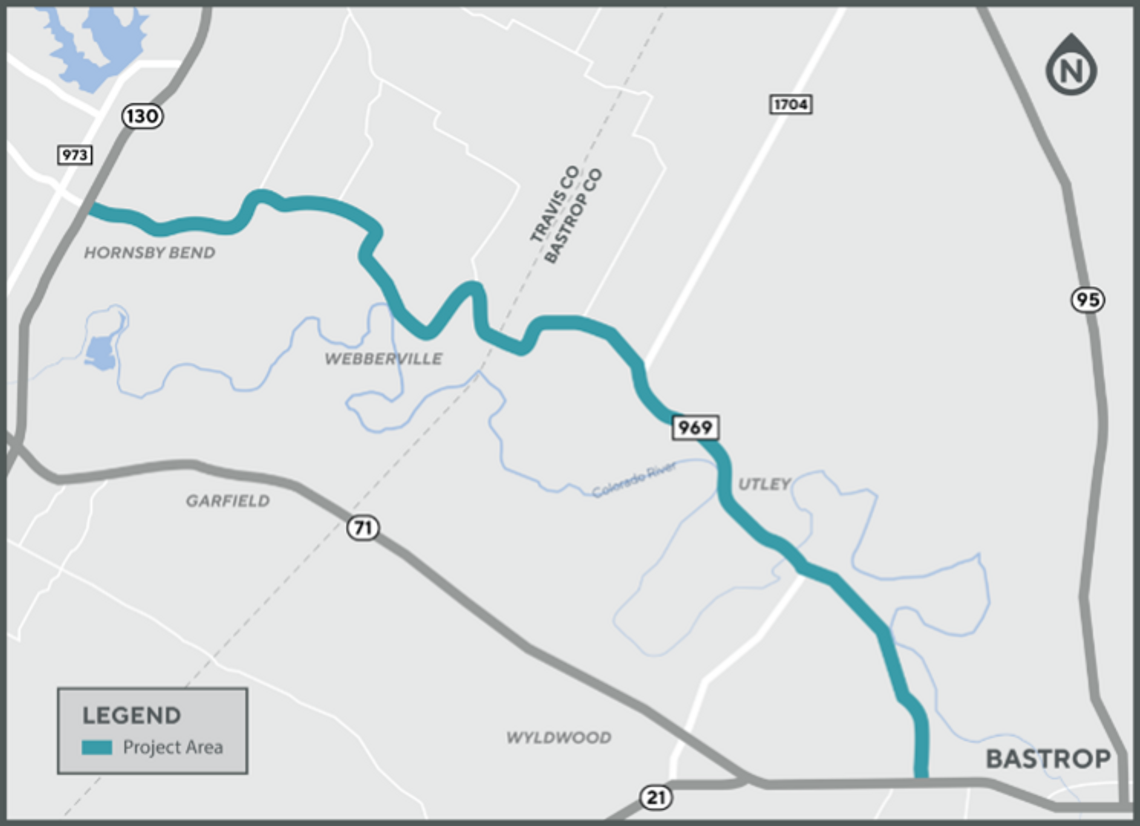Transportation planners are asking for public input on the future of FM 969 as part of a regional effort to address rising traffic, safety and infrastructure needs on the key connector between Austin and Bastrop County.
The Capital Area Metropolitan Planning Organization and the Texas Department of Transportation are leading the corridor study, which spans from Texas 130 to Texas 21. An in-person public meeting was held in Elgin last week to introduce the endeavor and gather input on community priorities. Officials said the project will help identify, evaluate and recommend potential improvements based on traffic data, environmental conditions and residential feedback.
The growing corridor currently serves about 10,000 vehicles daily, a number projected to nearly triple to 28,000 by 2045, according to CAMPO records. Census estimates also show Bastrop County’s population is expected to follow a similar path—from 97,000 in 2020 to more than 266,000 by 2045.
CAMPO and TxDOT stated these trends make it essential to plan for long-term improvements across the county line. Currently in the data collection phase, the study will consider potential roadway upgrades, pedestrian and bicycle accommodations, safety enhancements and environmental constraints along the route.
According to CAMPO, the study timeline includes developing proposed improvements this fall and releasing a final feasibility report in early 2026. That report will incorporate technical findings and community feedback and may recommend next steps for development.
A virtual open house remains available for public input through June 16 at campotexas.org/get-involved, featuring a self-guided meeting room with the same information presented at the recent event. Residents may also submit comments by email to [email protected]. Officials note that future phases will depend on available funding and could include detailed environmental studies, engineering design, right-of-way acquisition, utility coordination and construction. Additional opportunities for input will be offered as those phases progress.
For questions or to request printed materials, contact the project team at (512) 651-3964.
.png)






